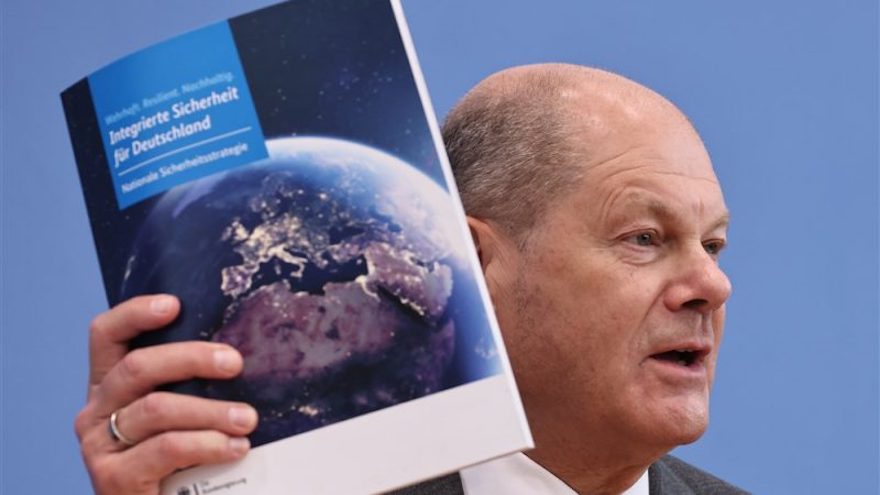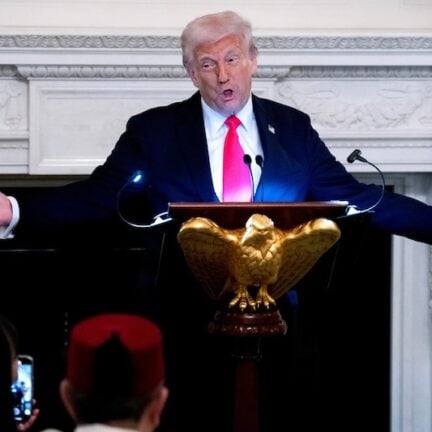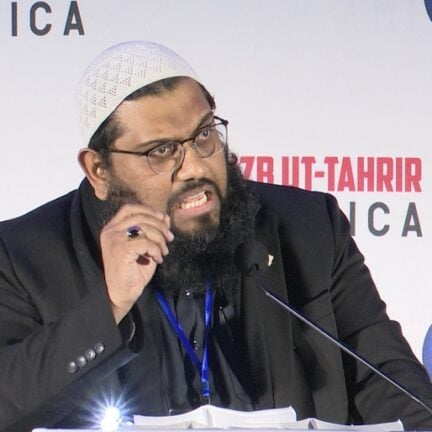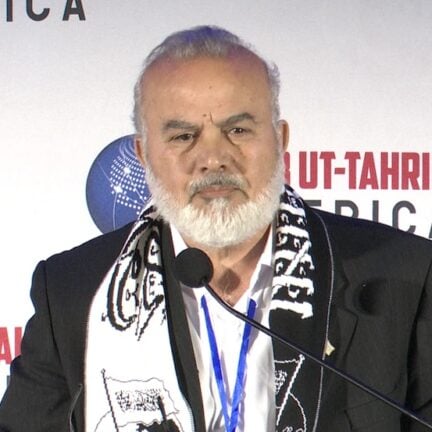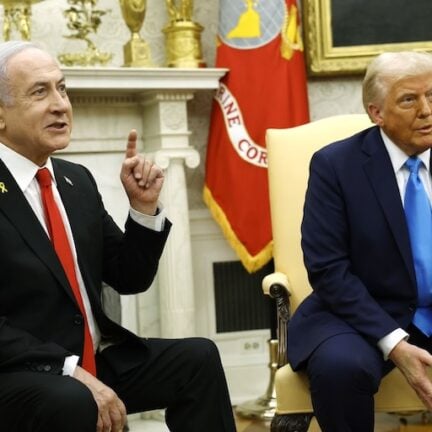Question:
On 14/6/2023, for the first time since the end of World War II, the German government approved a national strategy for national security, after negotiations that took more than a year between various German bodies. Does this strategy represent an end to the restrictions imposed on Germany since its defeat in World War II in 1945? What is expected of Germany after adopting this strategy in European and international politics?
Answer:
Germany, as a defeated country in World War II, was divided into four sectors, each of the major victorious countries in the war (America, the Soviet Union, Britain and France) controlling a sector in it, then the three western countries established West Germany and Russia established East Germany. In practice West Germany followed America as a dependent state. Similarly, East Germany was with the Soviet Union (Russia). East Germany represented an advanced military base for the Soviet Union to the west, and the same for West Germany to America as the leader of the western camp to the east. This was after World War II… but this reality gradually changed after that:
1- With the exception of some formal matters, neither of the two German states had a policy independent of the camp leader, and this remained the case until the Soviet Union weakened and agreed to the unification of Germany in 1990, i.e., Moscow abandoned East Germany in favour of the West. With the signing of the Maastricht Treaty of European Unity in 1992 despite America and with Russia retreating to its internal problems after the dissolution of the Soviet Union in 1991, Germany has begun to emerge as the most important economic power in Europe. The Germans saw that international conditions had changed and that there was an opportunity to install the economic aspect as a primary pillar of Germany’s independence, so Germany emerged as economic power competing with other European powers without provoking any other European powers; Britain and France, or the International; Russia and America, especially since German defense policy adheres to minimum militarization.
2- With its industrial and economic success and the expansion of its trade relations with Russia, Germany succeeded in leading the European countries economically, and this German leadership was imposed de facto, as in the Greek crisis in 2010. In general, a major economic matter cannot be concluded in Europe or in the external relationship with it without Germany. Although this was not positive for France in particular, the weakness of the German military was constantly suggesting to France that the competition between the two countries was still within its good sporting framework. During those periods, Germany was issuing its vision of security challenges through white books issued by its Ministry of Defense, the first of which was in 1969 and the last in 2016, and it was talking about security and terrorism and the desire to participate, but through the United Nations, and when Russia in 2014 stripped Crimea from Ukraine and its annexation to it, Germany strongly opposed this and participated in Western sanctions against Russia, but its growing commercial interests with Russia were preventing it from leading any action against Russia. Despite talk that Russia was destroying the European security equation by annexing Crimea, Germany’s involvement in the Minsk agreements raised hope for the Germans to stop Russian threats on the borders of Crimea and Donbass, where Russia had started a war that year and supported Russian separatists against the Ukrainian government.
3- But with Russia’s invasion of Ukraine in 2022 and America’s conviction that Russia is only destroying the foundations of international security built by America, the European and international circumstances have combined to give Germany a golden opportunity to build another military pillar in addition to the already strong economic pillar in it. That is because America wants the European powers to stand on its behalf, in the face of Russia so that America remains prepared and ready to stop the rise of China. Here Germany saw that the international arena has become open to the emergence of Germany as a major military power, and with the severing of its commercial ties with Russia, Germany announced the establishment of a large financial fund worth 100 billion euros to support its army and its development to be able to maintain its security. It declared that the war in Ukraine represented a turning point, and even sent its warplanes far away to the Pacific Ocean in a strong indication that the German military force had begun to escape from the restrictions after World War II, and thus feelings of greatness tickled the German people. Germany talked about its special commitments towards Ukraine and even towards Eastern Europe, and there was much talk in Germany about the need for readiness to confront Russian imperial ambitions that will not end at Ukraine’s borders.
4- Chancellor Scholz’s government, during its presentation of the national security strategy 14/6/2023, was keen to show the Germans’ agreement on this strategy. Representatives of the German parties in the government coalition were present with the chancellor during its presentation, and they are the ministers belonging to the Green Party and the Free Democratic Party in addition to Chancellor Scholz’s (Socialist Democrat) party. This indicates the seriousness of these changes inside Germany and their effects in moving Germany from a military and security position in which it continued for decades after World War II to a new location, although the opposition parties have leveled many accusations against the government of some vagueness in this strategy.
5- Perhaps the statement of German Chancellor Scholz explains this qualitative and new shift in German policy:
[The German Chancellor emphasized that the National Security Strategy approved by the German government today is an important contribution to ensuring the security of people in Germany in light of a changing environment. The German Social Democrat politician said that the German Cabinet, in approving this strategy, made an unusual and important decision. Scholz explained that Germany’s security-political environment has changed strongly in light of the Russian attack on Ukraine and the increasingly aggressive appearance of the Chinese government. Scholz stated that the central task of the state is to work to ensure security for citizens without any concessions, indicating that this task will be done through the security strategy that follows the guiding principle of integrated security. He continued that what was limited in the planning of the German government in the past to defense policy only, will now follow a holistic and comprehensive approach (Deutsche Welle, Germany, 14/6/2023)].6- Germany’s national security strategy document represents the principles that lead the German government to maintain the security of its people. One of the most important principles adopted since World War II, which was dropped in this document, is that the German army carries out defensive tasks to address security threats and moved to carry out comprehensive actions, that is, it includes attack This is a major and dangerous development in Europe. The document stipulates a comprehensive and rapid development of the German army. In addition to emphasizing commitment to the NATO decision in 2014 to spend at least 2% of the national product for the benefit of the army and security, Germany is preparing the rest of the ministries to reduce their budgets in favour of the army. This is also a major change in reducing the outlook German welfare. Finance Minister Christian Lindner said: [Germany had for many decades “lived on the dividends of peace”. This means that it was believed that there was no need to focus too much on the issue of defense. “This means that the shares in the budget will bring permanent change,” said the Finance Minister in Berlin while presenting the strategy. (Deutsche Welle, Germany, 16/6/2023)].
7- The document also represents the German government’s view of risk analysis, as the Russian army stands at the forefront of external risks, or what they called the Russian attack on Ukraine, and after that, that is, to a lesser extent, standing against the rise of China and its regime, which they call in the West authoritarian, as stated in Scholz’s statements (the emergence the increasingly aggressive Chinese government). The document does not overlook internal risks such as cyber security and the seriousness of the threat to German infrastructure and climate change, although these issues are directly related to the threat from abroad, as Russia is accused of carrying out cyber-attacks in Western countries. As well as international coordination to reduce the risks of climate change, meaning that this German strategy for national security represents the German transition from one situation to another in its foreign policy, although some doubts and suspicions still dominate the political mentality in Germany.
8- By strengthening its army and allocating huge budgets for its development and opening the way for military actions abroad, including offensive ones, Germany will have gotten rid of the military complex imposed on it in what is known as the post-World War II restrictions, meaning that this complex has become a thing of the past. This raises major and fundamental differences. Between it and France, those differences are unmistakable seen today, although Germany, which signed the Non-Proliferation of Nuclear Weapons Treaty, is still committed to its non-nuclear status, which was confirmed in 1990 in the “Treaty on the Final Settlement with respect to Germany” signed with the four major powers upon its unification in the same year. In order to understand the depth of these changes in Germany, the strengthening of the German army requires an increase in its number, and this contradicts Germany’s commitments in the “Treaty of Final Settlement with respect to Germany” signed with the major powers in 1990 to unite Germany, that treaty that set the ceiling for the German army with a maximum of 370 thousand soldiers, but America, along with Britain, pushed Germany to play a new role in confronting Russia, which will facilitate Germany’s disavowal of this agreement, and this will represent a departure for Germany from any Russian restrictions on its military power. As for France, its position seems weak in the face of the American and British tendencies to strengthen Germany. Indeed, the growing German-French dispute may work to undermine the European Union as a whole, which is welcomed by both America and Britain.
9- In order to mitigate French fears, especially of the rise of the German military, the German strategy talks about Germany as part of the European Union: [The government set in the strategy a set of goals, such as the necessity of strengthening technological defense at the European level, and strengthening the confrontation of espionage, sabotage and cyber attacks. In addition to the necessity of coordinating Arms export controls at the level of the European Union (Deutsche Welle, 16/6/2023)]. However, from another angle, there are fears of another kind in Paris, which sees that strategies for Europe have come to be issued from Berlin, as Germany also leads the European project for air defense. [The new strategy refers to Germany as the largest in Europe in terms of population and economic power, and thus to what is required of it to strengthen the European defense system and NATO. It alludes to Germany’s desire to play a leading role here, especially as it seeks to build a European missile shield Sky Shield. Defense Minister Boris Pistorius announced that 18 countries had expressed their agreement in principle to participate in this initiative (Al-Sharq, 17/6/2023)].
10- With regard to the view of China and Russia as authoritarian regimes, German Foreign Minister Baerbock says in her explanation of the national security strategy:[The strategy is based on “three central dimensions” of security policy: defense, steadfastness, and sustainability. The field of defense includes strengthening the army, civil defense, and protecting citizens. In the field of Resilience, that is, the ability to resist, is about defending “our basic free democratic system against illegal external influence” in addition to that “unilateral consequences in the field of raw materials and energy supplies” should be reduced and sources of supply diversified (Deutsche Welle, 16/6/2023)]. And in this great German drift behind the American policy to limit the Chinese supply chains, after America forced Germany and all of Europe to cut off most of the energy supply chains from Russia. This matter is explicit and unambiguous in the German statements, according to Chancellor Scholz, according to the same previous source, “For us, the connection with the European Union and the transatlantic alliance remains central.”
11- Thus, the dimensions of this German national security strategy can be summarized as follows:
a- This strategy put an end to the German military complex imposed on it since the end of World War II, as Germany is moving steadily towards strengthening its army and making it a guarantor of its security, but Germany breaks the restrictions as international circumstances allow, as it remains a signatory to the non-proliferation of nuclear weapons.
b- In accordance with Western international conditions, Germany defines its enemies accordingly as the Russian army in the first place, and in the second place China. Which German strategy talks about as being a trading partner and a country with an increasingly aggressive view towards its surroundings, but it does not cancel cooperation with it in solving international problems. Its position towards that is completely identical to the stated position of the Group of Seven.
c- Germany defines the security and military challenges surrounding it as a member state of the European Union and a member of NATO. The German strategy confirms Germany’s commitment to work through these European and international bodies.
d- If this strategy confirms that Germany is part of Europe and part of NATO countries and talks about its security as part of the collective security of the European system and the Atlantic system and confirms that it defends the international system that America controls, all of this does not reduce the danger of this German strategy. Nor does it underestimate the fact that this German strategy represents one of the great international losses for Moscow, just as Sweden and Finland joining NATO.
e- And if Germany has exploited during the past three decades its position within the European Union to highlight its leadership in economic matters, then it was its first step towards greatness, and now it is taking advantage of the war in Ukraine and the surrounding international circumstances to build a strong army and an industrial military base as its second step towards greatness. This enables it to break free from the rest of the restrictions and build a German strategy separate from the countries of Europe and separate from America, and although this is not expected in the short term, events indicate that Germany will follow this path.
12- In conclusion, the great powers in today’s world compete with each other to shed blood unjustly and with transgression, by spreading corruption in the land, and destroying crops and offspring. The people’s situation will not improve unless the earth shines with the light of the Khilafah (Caliphate) again, restoring security and safety not only to Muslims, but to whomever its shadow reaches and then the truth is heard in all corners of the world.
[وَقُلْ جَاءَ الْحَقُّ وَزَهَقَ الْبَاطِلُ إِنَّ الْبَاطِلَ كَانَ زَهُوقاً]“And say, “Truth has come, and falsehood has departed. Indeed is falsehood, [by nature], ever bound to depart.”” [Al-Isra’: 81] [وَيَقُولُونَ مَتَى هُوَ قُلْ عَسَى أَنْ يَكُونَ قَرِيباً]
“And say, “When is that?” Say, “Perhaps it will be soon” [Al-Isra’: 51]
5 Dhul Hijjah 1444 AH
23/6/2023 CE

